CRN Exclusive: Michael Dell On Software-Defined Upstaging Public Cloud, 'Increasingly Integrating' Dell's Full Portfolio, And Channel Sales Momentum
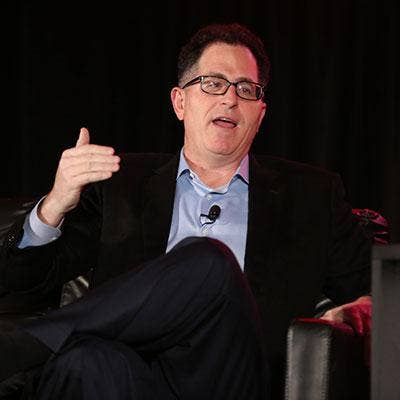
Michael Dell On The Record
Dell Technologies founder and CEO Michael Dell said software-defined data centers are changing the way organizations view the economics of buying on-premises solutions versus going to the public cloud.
"What we have seen when you automate and modernize the infrastructure, software-define everything, and move up to the platform level is that for the predictable workloads – which are for most companies 85 percent to 90 percent of their workloads – an on-premise solution is much more cost-effective," said Dell in an interview with CRN.
The $80 billion Round Rock, Texas-based infrastructure behemoth is on a revenue tear, recently reporting sales of nearly $22 billion for its fourth fiscal quarter, up 9 percent year over year, while deferred revenue hit $22.2 billion, an increase of $3.6 billion. Dell talked to CRN about the rise of software-defined data centers, Dell's sales charge this year, and further integrating the full Dell Technologies portfolio.
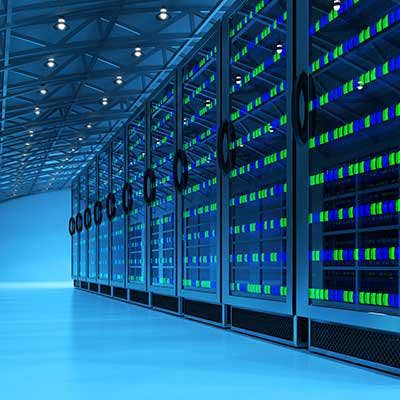
What is Dell's vision for software-defined data centers and do you see that as more cost-effective than the public cloud?
What we have seen when you automate and modernize the infrastructure, software-define everything, and move up to the platform level is that for the predictable workloads – which are for most companies 85 percent to 90 percent of their workloads – an on-premise solution is much more cost-effective. It really is a workload-dependent discussion. So you can find workloads along one place or another, but if you look at the growth that we had in deferred revenues or you look at the growth that we had in Dell Financial Services -- with originations up 38 percent for the year – a lot of that is driven by variable usage, consumption-type models. So we're definitely embracing that rapidly. With Pivotal Cloud Foundry, with VMware software-defined data center and Dell EMC infrastructure, we're completely unique and advantaged in our ability to do that.

Is software-defined going to change the economic dynamics around public cloud? Can on-premise really be more cost-effective than a public cloud?
I think they're related. If you look at the public clouds, what they have done is to software-define everything and automate everything, and then create this interface that's very attractive for developers. Those are great things to do, but they're not unique to the public cloud. So what's happening is this idea of automating everything, software-defining everything, and getting to autonomous operations of infrastructure is occurring all across the computing spectrum. So it's happening in the private clouds, it's happening at the edge, at the distributed core, public clouds, software as a service, managed services – everybody's going in that direction.

What is your software-defined networking strategy?
Certainly, you need software-defined networking if you're going to automate everything, and we're number one in that too. So [VMware] NSX is doing extremely well. NSX bookings grew over 50 percent for the full year and it's on a $1.4 billion run rate. We're in a great position there. We've acquired VeloCloud, so we're also number one in SD-WAN. If you think about all these multi-location businesses, that's going to be a big growth area.
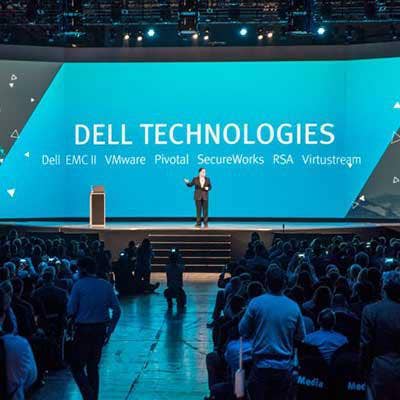
How important is it to integrate the full Dell Technologies portfolio, and how is that going to benefit the channel?
We are increasingly integrating the products at a technical level and you see that with Dell EMC, VMware and Pivotal, but we're also doing it across the rest of the family. It's resonating extremely well. Our big event in May this year is going to be Dell Technologies World, instead of Dell EMC World. You'll see a substantial presence there from Pivotal, RSA, SecureWorks, VirtuStream and Boomi, in addition to VMware and Dell EMC. Yeah, customers are loving the fact that they don't have to integrate these things all together. For example, we have Pivotal-ready infrastructure on top of VxRail. So a customer that wants to build cloud-native apps and stand up a multi-cloud infrastructure, we have a fast track to get there. One of the things I've seen with a lot of our partners, particularly the ones that are growing fastest with us, they're more consultative and they're more engaged in creating those solutions and able to access the whole portfolio to bring those solutions to customers.

How many partners are taking advantage of the full Dell Technologies portfolio?
More and more are. … We're seeing something interesting. I was on the East Coast last week, met with a couple of partners that are really consultative-led businesses. I was at a partner event yesterday where a partner had invited 50 or so customers and asked me to come and speak, and again, the partner was consultative-led. As you talk about digital transformation, it requires some real expertise that the partners that we're seeing grow the fastest are the ones who are stepping up and building those capabilities.

What type of recent momentum have you seen in the channel?
The momentum in the fourth quarter and for the full fiscal year was spectacular. In fourth quarter and the full year, revenues were up double digits. The average number of product lines that our partners are selling continues to increase. Our partner Net Promoter Score [NPS] is 59, which is quite a high score. Our orders from the channel were up 19 percent year over year in the fourth quarter. To break that down -- client was up 21 percent, server up 28 percent and storage up 3 percent. There was very strong growth in services. We had over 54,000 new and reactivated customers throughout the year and over 400,000 deal registrations approved during the year. Partner training continues to advance. We had about 100,000 credentials earned across more than 20,000 people across the partner network.

What's your message to your indirect and direct sales teams this year?
It's continuing to grow our share. There's a specific focus on storage and data protection, and helping our customers with this digital transformation. There's an opportunity for all of us to go higher in the accounts and to be able to talk about the core transformations and help customers really address those challenges, which is pretty different from what we were doing 10 or 20 years ago. Customers are now thinking about technology very differently than they used to. So if you went to a company 10 years ago and said, 'What technology do you want?' They would have said, 'That's a question for the IT department.' Now they're thinking about technology as how it can make their products and services better, how it interacts with their customers, how it attracts more customers, how it helps expand them into adjacent markets – it's driving a whole significant expansion of our business.
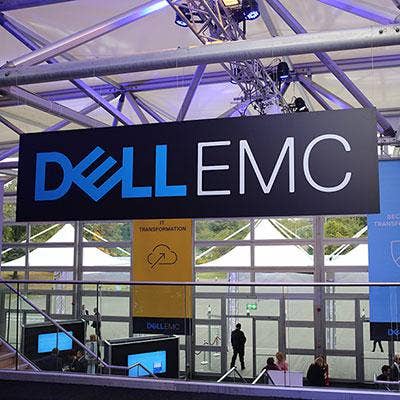
Can you give an example?
If you take, for example, any sector – manufacturing, health care, retail – there's a massive build-out in edge computing with intelligence inside everything on the edge. That requires all kinds of new infrastructure and software capabilities. It has to be secure because every connected point becomes a point of vulnerability. Only Dell Technologies is very unique in being able to address digital IT, workforce and security -- from the edge to the core to the cloud.
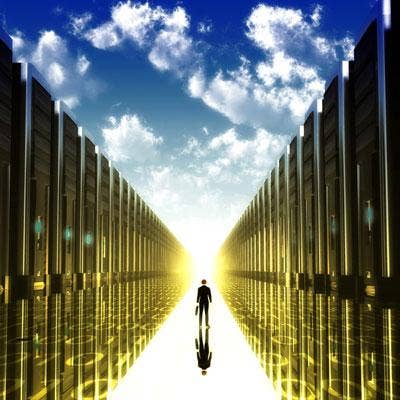
Is there a unique opportunity for Dell Technologies to unify the channel around a complete end-to-end IT stack from the desktop to the data center to the cloud?
No question. That's why the business is growing in the way that it is. That's why the channel partners are demanding and adopting the solutions, as are the customers. We're doing well and we're well positioned. Look, there's plenty of competitors out there, but we feel confident with the solutions we have that we'll be able to grow faster than the market.
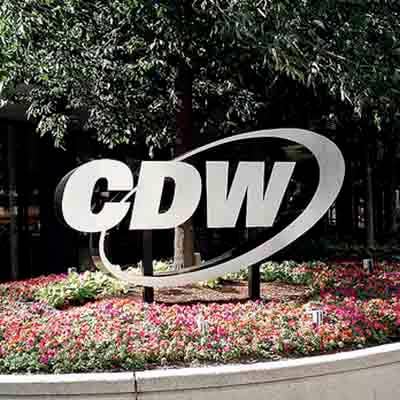
Are you having a different type of relationship now with some of the larger solution providers?
We spend a fair bit of time with them. We're going to be with a number of them next week. We were with a number of them this week, and last week too. It's a constant thing. We learn from each other. The good news is there's a ton of opportunity.
Has your relationship with CDW grown?
That one kicked off coincidentally in October of 2015. It truly was an independent thing separate of the EMC combination. Now with EMC, VMware, Dell all coming together, you can imagine it's a very significant relationship.

Why is now the best time to be a Dell Technologies channel partner?
When I look out at the overall economic condition and the way the customers and partners are reviewing technology today, it's a wonderful time to be in our business. The Dell Technologies story is clearly resonating. We're adding capacity to meet the demand. We're bringing the broadest portfolio in infrastructure and we're very unique in being able to address the challenges in digital transformation, workforce and security. What we're seeing is that each of the individual parts is made stronger because of the whole Dell Technologies family -- and customers and partners are coming with us in a big way. Back in October in 2015, when we announced the EMC acquisition – it's now happening. In fact, there was an IDC survey that talked to a bunch of customers and it found that 91 percent of customers said Dell and EMC delivered on the pre-merger promises we made. The engagement has been great. We're excited about the new year.